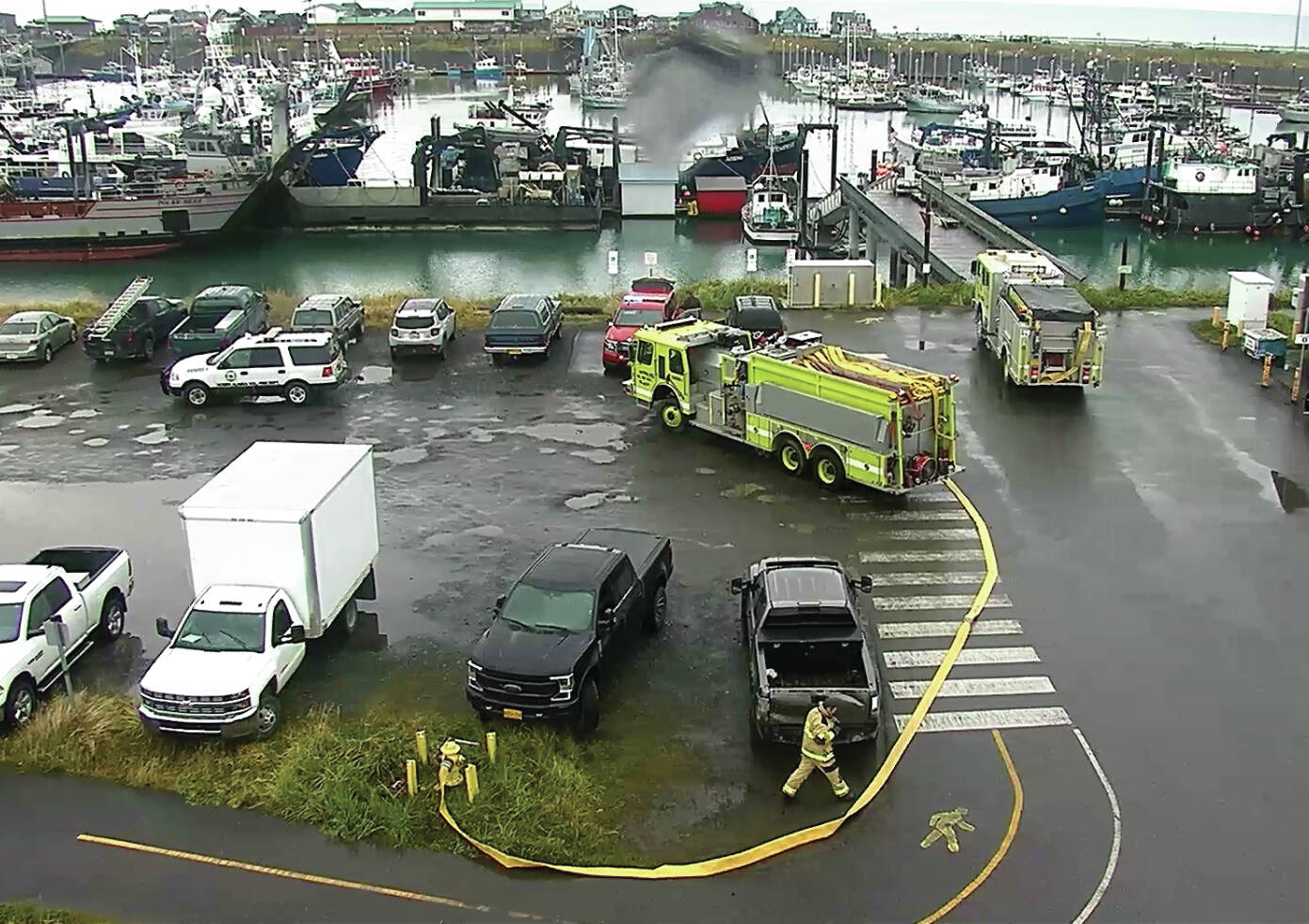Homer Volunteer Fire Department responded to a fire in the Homer Harbor earlier this month.
According to Matt Clarke, deputy harbormaster, on Oct. 13 at approximately 12:30 p.m. the crew from the Arctic Seal, a landing craft, reported the smell of smoke to the harbor office.
Harbor officers went down to the docks to investigate the report. Clarke said the officers went on to the deck of the Sand Island and confirmed that there was smoke in the interior of the vessel and heat rising from the vessel and called 911.
The Sand Island, an 80-foot-long vessel, is built of steel and owned by Global Diving.
The vessel conducts commercial dive and salvage work, primarily in the upper Cook Inlet oil fields. The vessel was located near ramp eight on the north side of the harbor, Clarke said.
Officers knocked on the door of the vessel, and verified that there was no one trapped inside.
“At that point, once the fire department had been notified, harbor staff mustered the fire response equipment and readied it for the fire crew,” said Clarke.
“It took about 15 minutes for fire department to arrive. I had mobilized the harbor’s fire tug and was stationed in the water outside of the Sand Island in a position where I could put water on it or move other exposed vessels and we had a team on the dock waiting for the fire department,” Clarke said.
The fire was located in the forward portion of the vessel, adjacent to the decompression chamber. It originated around a space heater in contact with possibly a box of plastic bags or garbage can liners and a rubber boot. According to Clarke, it was a relatively small area exposed to heat and the fire was extinguished quickly by the fire department.
Once the fire was extinguished, responders continued monitoring the situation with a thermal camera to confirm all the hot spots were cooled down. That process took another 45 minutes to call it safe.
“I think the bigger picture here is that Homer got lucky. We had a fire started on a large vessel in a highly congested part of the harbor that’s over utilized and that is a real vulnerability. We’re lucky that we detected it early and it didn’t become fully engaged and that we didn’t have that vessel as others exposed to it actually burn,” Clarke said.
The Homer harbor currently houses vessels in tight mooring conditions to accommodate the demand for the harbor facility and that can compromise public and environmental safety, Clarke said.
“If you have a full fire that develops, it can be catastrophic. The last thing we want is burned vessel or sunken vessel in the harbor basin and have to figure out how to deal with. Or, it may lead to something like a large fuel spill or other contaminants in the water.”
Clarke mentioned the ongoing Homer Harbor expansion investigation project, which is currently facing delays due to lack of federal funding for 2024.
“I think this event really shows the relevance to the expansion project and benefit of more space in our harbor.”



